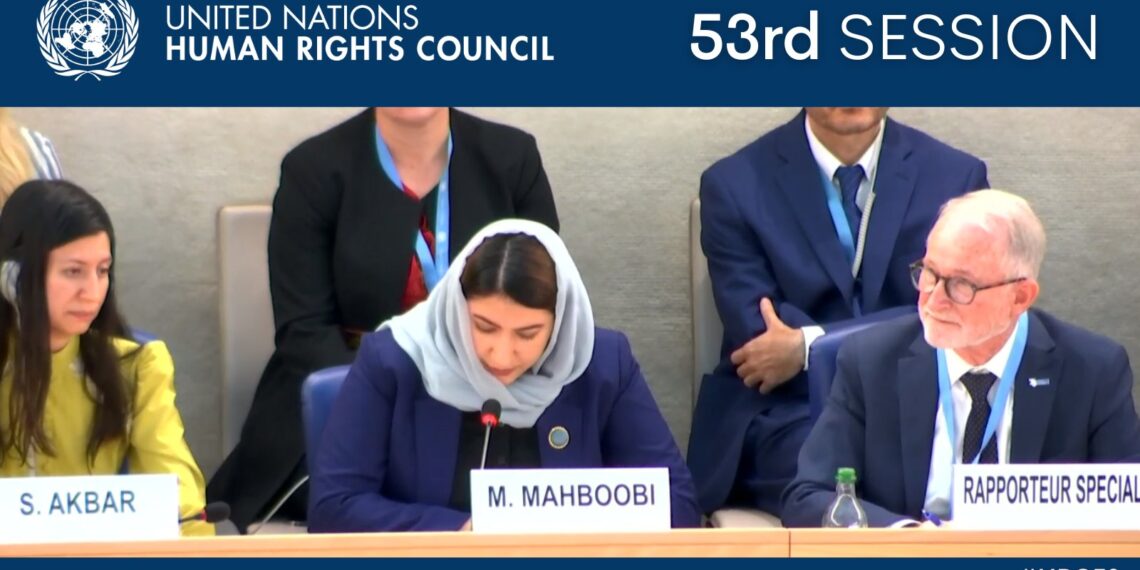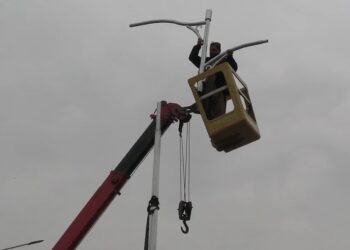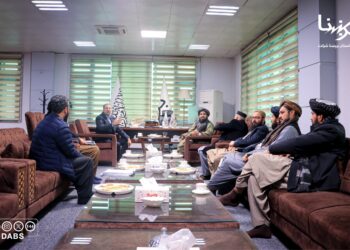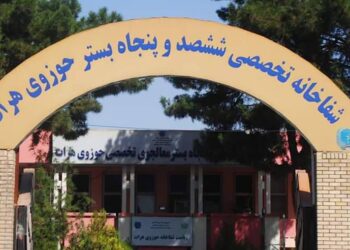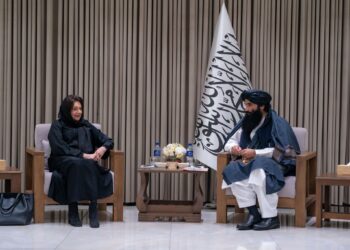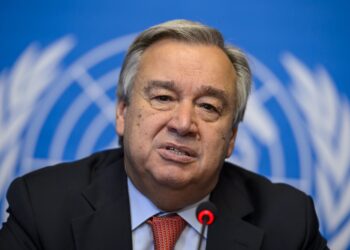The UN Special Rapporteur for Afghanistan’s human rights has once again presented a report to the UN Human Rights Council, in which he severely criticizing the actions of the IE against women and called for a new policy against the IE.
After the meeting of the Human Rights Council, a colleague of Richard Bennett and a human rights activist Madina Mahboobi said, they are looking for a continuous relationship with the Interim Government of Afghanistan.
According to Mahboobi, the solution to Afghanistan’s current problems is not war, but talks and negotiations, which the Interim Government of Afghanistan is interested in.
She added: “Once again, I want to stress on continuous communication, which is very important. Experience has shown that the Taliban are ready to negotiate, although long-term efforts are needed, but we can still take advantage of it. Afghans do not want war again. It is obvious that we no longer want war in Afghanistan but we want peace. Afghans have nothing to lose. You know! They have lost everything. So we don’t want a repeat of the past. We want peace and we want to be in a peaceful relationship with the Taliban, and this is the only solution for the current situation in Afghanistan.”
In addition to interacting with the IE, she denied the reports that Afghan women have been completely banned from work.
Mahboobi does not consider the protests to be a solution and has insisted on continuous negotiations with the caretaker government for the fundamental solution of the problems.
Mahboobi added: “There are rumors in the West or outside Afghanistan that Afghan women or other people are not allowed to work in Afghanistan anymore, but this is not true. There are many women who work with NGOs. For the development and improvement of the situation, protest on the streets is not a solution. It means that we are trying to negotiate with the Taliban and we are looking for a peaceful solution.”
Meanwhile, Dorothy Estrada Tank, the head of the working team on discrimination against women and girls at the United Nations, said that she has no hope that the caretaker government will take their report seriously, but she still hopes that IE will change its policies towards Afghan girls and women.
She added: “Will the Taliban take this report seriously, maybe not. This is a fact, but still there is always something that is not only a hope but also a possibility. Actions on human rights are unpredictable.”
Although much emphasis was placed on the interaction with the caretaker government in this press conference, but in the report submitted to the High Council of Human Rights, the IE was accused of gender discrimination, which the caretaker government decries that.
On the other hand, spokesman of the IE, Zabihullah Mujahid, said: “There is a lot of propaganda against the IE from the United Nations and some other Western institutions and governments. Richard Bennett’s report on the situation in Afghanistan is part of the same propaganda that does not match the facts. Islamic laws have been implemented in Afghanistan. Objection to them is a problem with Islam.”
Opposition to the war and insisting on interaction with the Interim Government comes at a time when political opinion holders are demanding reforms and meeting standards from the Interim Government in order to achieve the goal.

